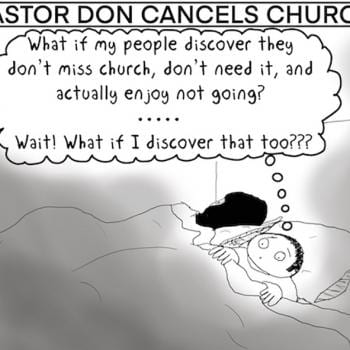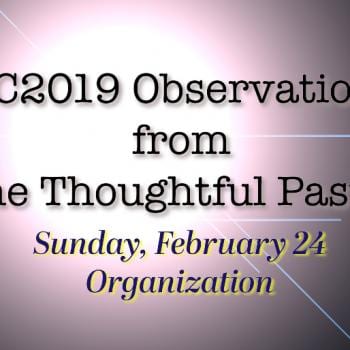The article made me ill. Nonetheless, I urge people to read it. It’s called The Brutality of “Corrective Rape.”
The lead paragraph sets the scene:
South Africa has one of the world’s highest rates of sexual assault. According to a 2009 government survey, one in four men admit to having sex with a woman who did not consent to intercourse, and nearly half of these men admitted to raping more than once. An earlier government study found that a majority of rapes were committed by friends and acquaintances of the victim.
Just as disturbing is a practice called “corrective rape” — the rape of gay men and lesbians to “cure” them of their sexual orientation.
Heart-rendering stories of people in who have been brutalized in the name of curing them follows this introduction. The author writes, “I met victims whose loved ones let rapists back into their homes, or even abetted the sexual assaults, sometimes under the influence of local ministers. ”
This is past horrific, and the fact that the movement has the support of some African clergy sickens me.
A Homophobic Heaven?
Former South African archbishop Desmond Tutu’s has stated that he “would refuse to go to a homophobic heaven” and instead choose “the other place.”
I remember thinking the same thing about a heaven where women would forever be relegated to the still-common Christian understanding of seeing females as made in the image of the male, not in the image of God. Forever, then, women must be regulated to a “not-just-quite” position.
I asked myself, “Would that continued experience of subtle or not so subtle denigration really be something I could call ‘heaven?’ Are there really gradations in our humanness, so that some are created less in the image of God than others? Are some people, simply by virtue of their anatomy, skin color, sexual desires, etc. simply more worthy to sit at the table than others?
I asked then and still ask, “Is heaven even possible for those who belong in that ‘not-just-quite’ position?”
I also appreciate the wisdom and careful thoughtfulness of Florida Bishop Ken Carter in his statement regarding a more generous orthodoxy concerning the members of the LGBTQ community who follow Jesus and know they are called to ministry.
Sexual Deviance Redefined
Sexual practices occupy the minds and utterances of many religious leaders. For good reason, I also say. Many sexual practices are highly destructive to the mind, body and soul. But this focus on homosexuality as the primary sexual “deviance” that must be addressed in society today has missed the mark. Much more sexual deviance and destruction springs from the rabid determination to force people into a mold that violates the essence of their human dignity.
In light of this, I want to know how many of the African clergy in The United Methodist Church have given either implicit or complicit support to the “corrective rape” movement? Who are those in our African connection that speak out against this societal horror? Who are those whose silence gives approval?
I think we in the US arm of this worldwide connection have the right to have answers here. I still have memories of what sounded like hate speech coming from some of the African delegates at the 2012 General Conference. Such words were aimed towards those supporting the full inclusion of our LGBTQ brothers and sisters. How far are our African clergy willing to go to prove the righteousness of their cause?
A Theology of Incarnation
And how are we going to bring reconciliation here between increasingly distanced theologies?
Personally, I think the time has come to re-examine what it means to live out of an incarnational theology. We must to reclaim the holiness and sacredness of the body for everyone, including the so-called “straights” whose sexual practices are rarely examined and held up to holy light.
We need a theology of the temple–which really is a theology of the Incarnation. In the first chapter of the Gospel of John, we are reminded that God became flesh and “tabernacled” among us. In other words, the place where the Holy Presence, the Shekinah Glory, caused people to fall on their knees in awe was no longer was a nomadic tent or a fixed and gilded building, but the body of Jesus.
And we, you and I, are now that place where the Holy Presence resides. We’ve lost much sense of deep physical holiness. It’s time to find it again, develop the theology, live it, model it and teach it.












